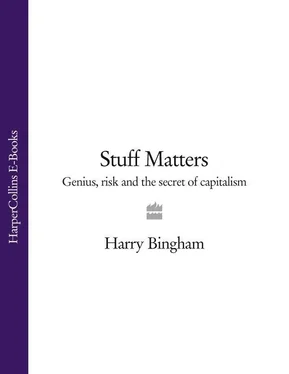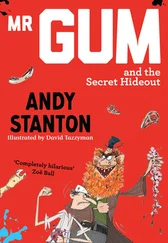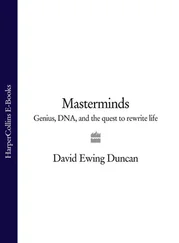I’d speculate, but sensibly.
That’s not how D’Arcy did it. He went in big. Huge. Together with two Queensland entrepreneurs, Thomas Hall and William Pattison, and the miners themselves, he formed a syndicate. The Morgan brothers contributed their mineral rights; the other three would provide a crushing mill for the extraction of the gold. D’Arcy didn’t have huge funds at this point, but he threw his all at the project. He gambled. His future. His wife’s future. Their baby’s future. Everything.
We know this story for one reason and one reason only. The bet paid off. The hill from which that black boulder had tumbled – Morgan Mountain, as it became – was truly a mountain of gold. The entire six man syndicate made a fortune, but D’Arcy made himself richest of all. He returned to England one of the richest men in the world. At its peak, and in present day terms, his wealth ran to several billion pounds. He bought a grand home in town and a magnificent country estate. After his first wife separated from him and then died, he married again and entertained on a prodigious scale.
Character and a moment of risk. Three rough men and a wild story. The spin of a geological wheel. A dazzling outcome.
But perhaps you’re not convinced. You’re there in that Rockhampton office, gazing out at that dusty street. Perhaps you would have gone in big. Perhaps anyone would. Perhaps it’s got nothing to do with character, just a question of being in the right place at the right time. A matter of luck, not temperament.
You might think so, but I haven’t played quite straight with you. There’s more to tell. D’Arcy was a gambler. A provincial solicitor in back of beyond Queensland doesn’t generally have much cash at his disposal. That D’Arcy had enough to make the investment possible at all was because he had already speculated, heavily and successfully, in land. He only possessed the means to bet on Mount Morgan because his appetite for such bets was already strongly evident.
Move the clock forward to the young man’s triumphant return to London. He had no financial need to stake anything on anything. He could have bought art, wined and dined, moved in society, held balls, indulged whims – done whatever he wanted. Yet horses and the racetrack still fascinated him. There were only two private boxes at Epsom race course. He owned one and the Queen owned the other. The thunder of horses’ hooves did what the clatter of a miner’s pick had once done. He needed risk to feel alive.
And one last thing. The main thing. The reason why D’Arcy is an important name and not merely a colonial chancer who came good. In 1900, an emissary from Persia came searching for ‘a capitalist of the highest order’ to invest money in the hunt for Persian oil. The geology was favourable. The oil business had already made fortunes for Rockefeller in the United States and for Marcus Samuel of Shell in Britain. The idea wasn’t crazy and D’Arcy was interested.
Twice already, he had spun the wheel. In land first, then in gold. The horse racing in Britain fed a compulsion but hardly offered stakes large enough to satisfy a gambler’s spirit and Persia offered the largest stakes of them all. A businessman, a real one, the kind used to managing complex corporations and large capital investments, might have looked harder before leaping. D’Arcy certainly made a show of thinking hard. He enquired after the geology, he ordered maps and took advice; but the badness of the advice he was given suggests that there was only one answer he’d ever have accepted.
From the Shah of Persia, he purchased a sixty-year concession to search for oil. The cost was £20,000 up front and a further £20,000 worth of shares in the venture. The cost of the bribes spent to gain the Shah’s agreement was more again. Even the eunuch who brought the Shah his morning coffee got his baksheesh. The cost of drilling two exploratory wells was estimated at £10,000. Real money, even for a prodigiously wealthy man.
His advisers, however, did not spend much time discussing the cultural complexities of the region: the Shiite hatred for political authority, for Christian interlopers, for foreigners. They did not pause to take account of certain technical challenges: the entire country boasted only a few hundred miles of road; the territories which looked most promising for oil lay across wild and mountainous countryside; and the local labour possessed so few technical skills that few of them had even seen a hammer. They did not allow much of a contingency reserve for the mounted tribesmen who would sweep down from the mountains demanding gold to protect the incomers from bandits – that is to say, from themselves. They did not make full allowance for the fact that Persia was so far away from anywhere with anything that the nearest dentist was to be found in Karachi.
When D’Arcy’s men came to drill, the cost of those first two wells was more like £200,000 than the £10,000 predicted. The venture bled money. Drilling started in 1902. In extremely challenging conditions, the equipment continually broke down. As early as 1903, D’Arcy’s overdraft stood at £177,000, or a few tens of millions of pounds in today’s money. *His bankers had demanded shares in the Mount Morgan mine by way of collateral and, to make matters worse, those shares had fallen to about one eighth of their peak value. Tough times on Easy Street.
Then, in 1904, relief. The drilling team struck oil. The would-be oilman used the news to scour Europe and the United States for new investors, but the well, that had started so promisingly, ran dry. He was advised to shift the exploration effort miles to the southwest. His overdraft grew still further. His bank started to demand the concession itself as collateral. Everything seemed lost.
As things turned out, D’Arcy did succeed in finding an investor, Burmah Oil, whose support enabled the troubled little venture to go on burning cash. By early 1908, however, even Burmah had had enough. It asked D’Arcy to put up more funds or close the whole operation down. He complained, ‘Of course I cannot find £20,000 or anything’, but stubbornly ignored the deadline. He just allowed it to pass without action or comment. The gambler refused to leave the casino.
Burmah, in turn, ignored their partner’s refusal to cooperate and on 14 May 1908 sent a letter to the drilling team in Persia informing them that they should close up shop, sell everything saleable, and come home. The letter took weeks to travel from Glasgow to Persia. And after it was sent but before it arrived, the drilling team struck oil. They hit a gusher so big that the spout of oil jetted fifty feet higher than the steepling drilling rig itself. Shortly afterwards, the second exploration well struck oil too, and also on a prodigious scale. When George Reynolds, the tough, single-minded genius of the drilling team, received Burmah’s communication, he wrote back sarcastically, ‘[Your] instructions…may be modified by the fact that oil has been struck’, and refused to act on them. The age of Middle Eastern oil had begun. D’Arcy recovered the funds he’d sunk into the sands of Persia and received shares worth some £895,000 to boot. The company that emerged went through several name changes since those early days, but is still alive and well today. The company is now known as BP and is worth approximately $175 billion.
I’ve told this story at length because it’s dramatic and because it makes a point. A moment of risk, of opportunity is not enough. Given the right opportunity, any of us may succeed to a certain extent, but the world has not been shaped by those whose ambitions run ‘to a certain extent’. D’Arcy’s ambitions were large when he speculated on land, larger when he speculated on gold, and almost boundless when he speculated on oil. You or I would have needed to conquer our aversion to risk to have done even one-tenth of what he managed. He, however, conquered nothing. He wasn’t averse to risk, he needed it. When he had all the wealth anyone could ever want, he put himself through almost a decade of financial loss and heartache simply to feel the thrill of that spinning roulette wheel one more time.
Читать дальше












